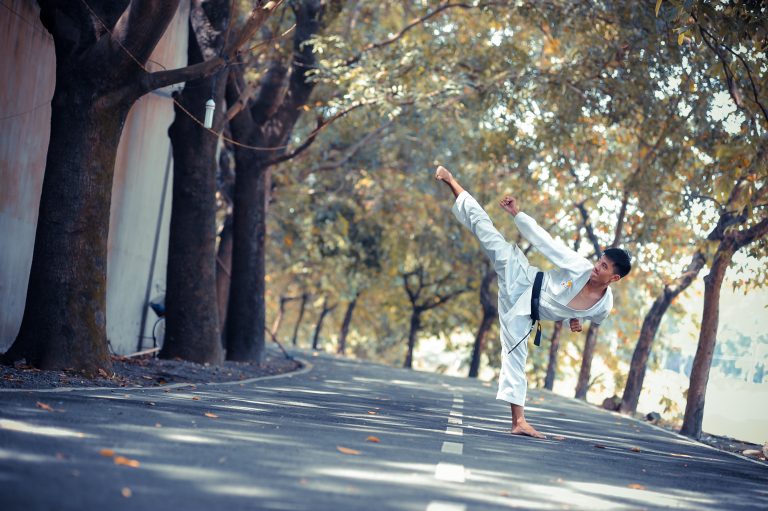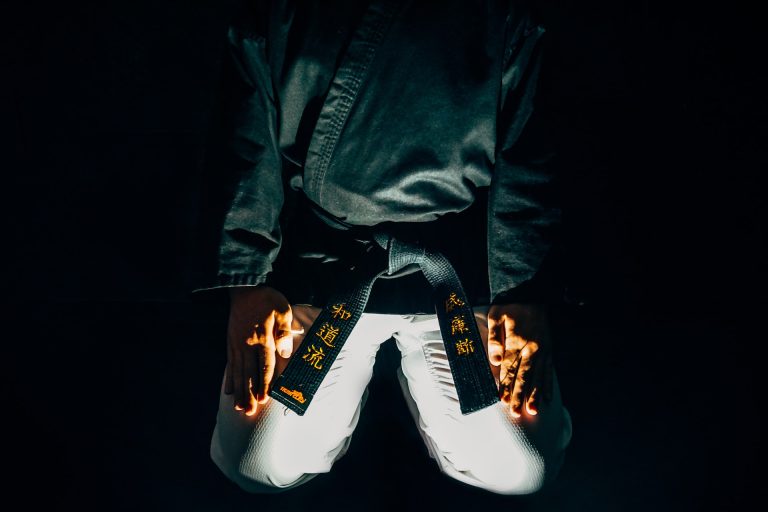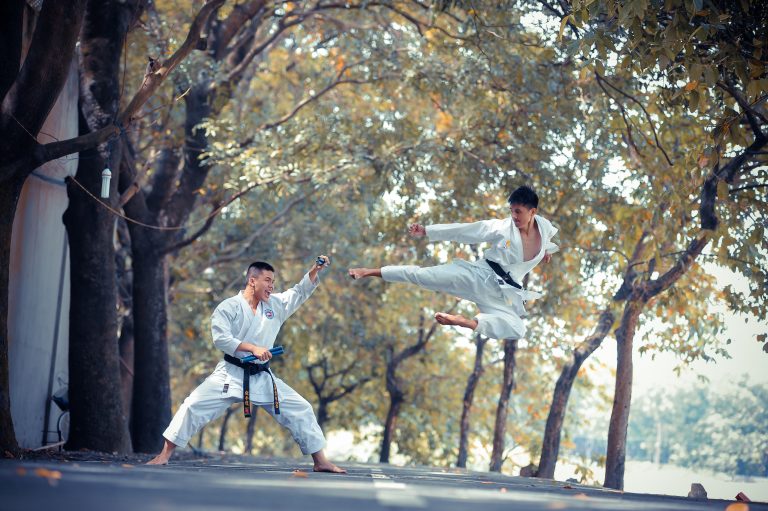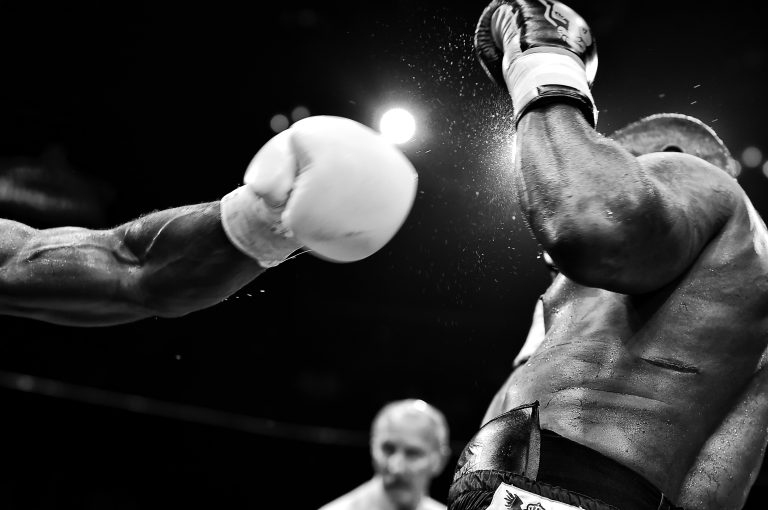How to Get Good at Karate
Karate is a highly respected martial art that has gained popularity worldwide. Training in karate involves learning various techniques such as strikes, kicks, and blocks, as well as developing physical fitness, focus, and discipline. Whether you are a beginner or have been practicing for years, improving your skills requires dedication and practice. In this blog post, we will provide tips on how to get good at karate.
1. Find a Qualified Teacher
The foundation of any martial art is having a good teacher. It is essential to learn from an experienced and qualified instructor who can teach you the proper techniques and provide guidance on your progress. Look for a teacher who has a recognized certification from a reputable organization or association. Do your research and ask other students for recommendations.
2. Train Regularly
Practice is essential to achieve success in karate. It is not enough to just attend classes. You must make a conscious effort to train regularly outside of class time. Repetition is key to muscle memory and mastery of techniques. Set a consistent training schedule and stick to it.
3. Develop Physical Fitness
Karate training requires physical exertion and stamina. You need to be in good physical condition to perform techniques and drills effectively. Incorporate strength training, cardio, and flexibility exercises into your training regimen. Remember to always warm up and cool down properly to prevent injury.
4. Focus on Technique
Proper technique is essential in karate. Focus on mastering the basic techniques before moving on to advanced techniques. Take time to perfect each technique by breaking it down and practicing it slowly. This will help to ensure proper body alignment and minimize the risk of injury.
5. Train with a Partner
Training with a partner provides the opportunity to practice techniques in a realistic and dynamic setting. It is also an excellent way to develop timing, reflexes, and sparring skills. Always train with caution and respect for your partner’s safety.
6. Attend Competitions and Seminars
Attending competitions and seminars can help you gain valuable experience and exposure to different training methods and techniques. Competitions provide the opportunity to put your skills to the test against other practitioners. Seminars provide the opportunity to learn from experienced instructors and gain new insights into the art.
7. Focus on Mental Discipline
Karate training is not just a physical activity; it also involves mental discipline. Focus on developing mental toughness, concentration, and focus. Establish clear goals and work towards achieving them. Remember that success in karate is not just about mastering physical techniques but also about developing self-discipline and control.
8. Embrace Continual Learning
In karate, there is always something new to learn. Be open to learning new techniques, training methods, and perspectives. Continual learning is essential to keep your training fresh and to continually challenge yourself. Attend workshops, read martial arts books, and watch instructional videos to expand your knowledge.
How to Get Good at Karate: Frequently Asked Questions
Karate is a martial art that has been practiced for centuries. It involves a combination of physical movement, mental discipline, and spiritual awareness. Learning karate is not easy, and it takes time, effort, and dedication to become proficient in it. In this article, we will answer some of the most frequently asked questions about how to get good at karate.
1. How Often Should I Practice Karate?
To get good at karate, you need to be consistent in your practice. This means practicing at least three times a week, but ideally, you should aim for five to six times a week. Consistency is key, and the more you practice, the better you will become. Make sure you give yourself enough time to rest and recover between sessions.
2. What Are Some Basic Techniques I Should Master?
There are several basic techniques that every karate practitioner should master, including punches, kicks, blocks, and strikes. Practice these techniques over and over again until they become second nature to you. As you progress, you can begin to add more advanced techniques to your repertoire.
3. Should I Focus on Strength Training or Cardio?
Both strength training and cardio are important for karate. Strength training will help you build muscle and increase your power, while cardio will improve your endurance and stamina. You should aim to include both types of training in your routine to get the best results.
4. How Important Is Flexibility?
Flexibility is crucial for karate. It will help you perform techniques more efficiently and reduce your risk of injury. Make sure you incorporate stretching into your routine before and after each session. You can also practice yoga or other forms of flexibility training to improve your range of motion.
5. Do I Need to Spar to Get Good at Karate?
Sparring is an important part of karate training because it allows you to practice techniques in a realistic situation. However, it is not necessary to spar to get good at karate. If you are uncomfortable with sparring, you can still become proficient in karate by practicing techniques on your own or with a partner.
6. How Do I Improve My Focus?
Improving your focus is essential for karate. One way to do this is to practice meditation or mindfulness techniques. These practices can help you quiet your mind and improve your concentration. You can also try setting specific goals for each training session to help you stay focused and motivated.
7. Do I Need to Attend a Dojo?
While it is not necessary to attend a dojo to get good at karate, it can be helpful. Dojos provide a structured environment for training and offer access to experienced instructors and other students. If you are serious about learning karate, consider joining a dojo in your area.
8. How Long Does It Take to Get Good at Karate?
The amount of time it takes to get good at karate will vary depending on several factors, including your natural ability, how often you practice, and the quality of your instruction. It can take anywhere from a few months to several years to become proficient in karate. Remember that learning karate is a journey, and progress takes time.
In conclusion, getting good at karate requires consistent practice, dedication, and a willingness to learn. By mastering basic techniques, focusing on strength and flexibility, improving your focus, and finding the right training environment, you can become a proficient karate practitioner. Remember to be patient, stay motivated, and enjoy the journey!
How to Get Good at Karate
Karate is a martial art that originated in Okinawa, Japan, in the early 20th century. It’s a discipline that not only helps you develop self-defense skills but also strengthens your body and mind. Becoming good at karate requires a lot of dedication, practice, and commitment. Here are some steps you can take to get good at karate.
Step 1: Find a Good Dojo
The first step to getting good at karate is finding a good dojo. A dojo is a training facility where you can learn and practice karate. Look for a dojo that has experienced and qualified instructors. Ask around for recommendations from friends, family, or colleagues who have experience with karate. You can also check online for reviews of local dojos.
Step 2: Learn the Fundamentals
Once you have found a good dojo, the next step is to learn the fundamentals of karate. This includes learning the basic stances, strikes, kicks, and blocks. Pay attention to every detail, such as the position of your feet, hips, knees, and hands. Practicing the fundamentals will help you build a strong foundation in karate.
Step 3: Practice, Practice, Practice
The key to becoming good at karate is practice. Set aside time each day to practice your techniques. Repeat each technique until it becomes second nature. Practice in front of a mirror to ensure that you are executing the technique correctly. Explore different techniques and practice with different partners.
Step 4: Develop Strength and Flexibility
Karate requires strength and flexibility. You need to be able to move quickly and powerfully. Incorporate strength training exercises such as push-ups, sit-ups, and squats into your routine. Also, practice stretching to improve your flexibility. You can do this either before or after your karate practice.
Step 5: Learn Self-Discipline
Karate is not just about physical strength; it requires mental strength as well. Learn to discipline your mind and body. Set goals for yourself and work hard to achieve them. Be patient with yourself, and don’t give up easily. With consistent effort, you will see progress.
Step 6: Participate in Tournaments
Participating in tournaments is an excellent way to test your skills and gain experience. Look for local tournaments or competitions and sign up for them. Don’t worry about winning or losing; focus on the experience of competing and improving your skills.
Step 7: Teach Others
One of the best ways to improve your own skills is to teach others. When you teach, you get to practice your techniques, and you also learn how to explain them effectively. Teaching others also helps you develop leadership skills and builds your confidence.
Conclusion
Getting good at karate requires time, dedication, and practice. Find a good dojo with experienced instructors, learn the fundamentals, practice consistently, develop strength and flexibility, learn self-discipline, participate in tournaments, and teach others. With consistent effort and hard work, you can become a skilled karate practitioner.
Inhaltsverzeichnis






